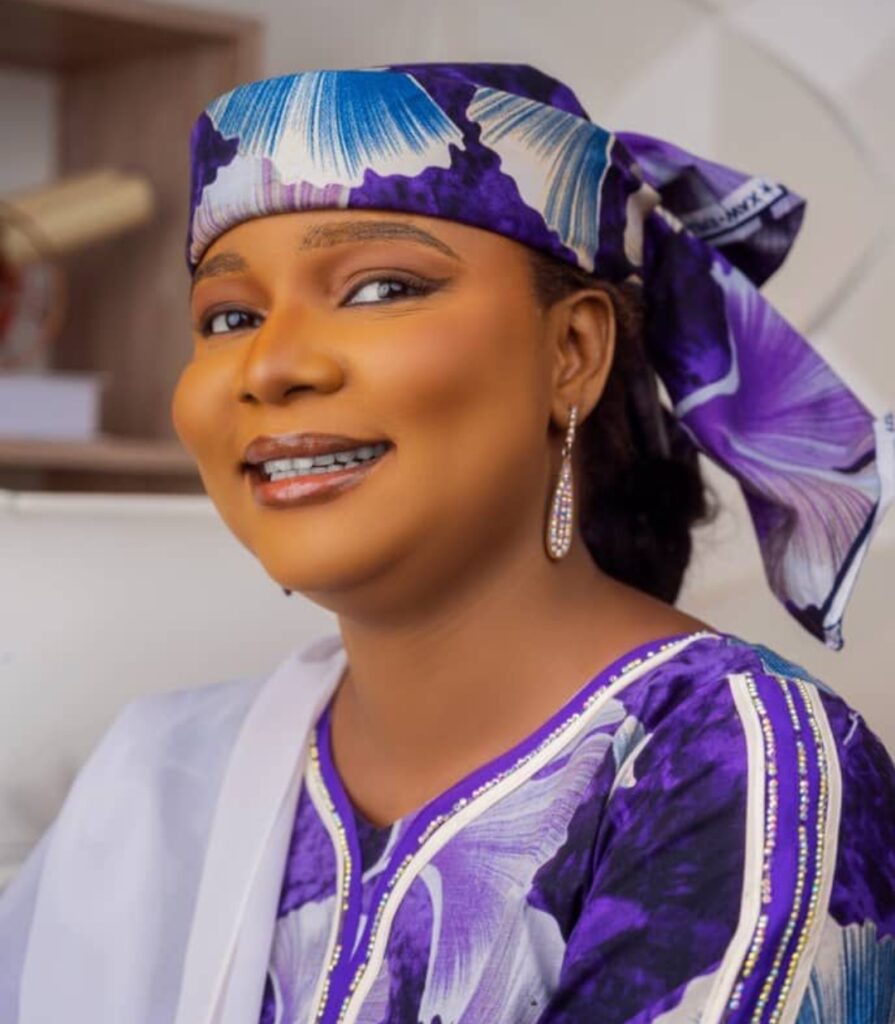…How I Launched the “Free Pads for Girls” Campaign
By Zainab Nasir Ahmad
Seven years ago, I made a decision that would change the course of my life and, I hope, the lives of thousands of girls across Northern Nigeria. I went on social media with a simple but bold message: “Every girl deserves dignity. Every girl deserves free sanitary pads.”
What followed was a storm I wasn’t fully prepared for but one I have no regrets facing.
It all began on an ordinary day. I was walking through a busy street when I noticed something that stopped me cold. Two young girls, probably no older than 12 or 13, stood by the roadside in school uniforms, hiding behind a kiosk. Their clothes were stained. Their faces were filled with fear and shame.
As people passed, some whispered, others turned away. No one stopped.
I approached them gently, offered my scarf to one of the girls, and asked if they were okay. They didn’t say much but they didn’t have to. They were menstruating. They had no access to pads. They were completely unprepared not just physically, but emotionally for this perfectly natural part of growing up.
That moment haunted me. I couldn’t shake the image of those girls confused, embarrassed, and alone in a crowd. I went home and cried. Then, I did what I could: I spoke up.
The next day, I posted this message online:
“I just met two young girls who missed school because they couldn’t afford pads. This should never happen. Let’s change this. #FreePadsForGirls.”
I didn’t expect much. Maybe a few likes. A handful of retweets. But what came instead was an avalanche of responses some supportive, many critical, and others outright hostile.
People called me “shameless” for speaking about menstruation. I was accused of promoting indecency. Even friends urged me to delete the post and stay quiet.
But I didn’t.
Because the outrage wasn’t really about me. It was about a society deeply uncomfortable with women speaking openly especially about things we’re expected to endure quietly. They said menstruation was a private matter. But how could it be private when girls were being publicly humiliated for it?
I kept speaking. And I kept acting.
With a few supportive friends, we began collecting and distributing sanitary pads to girls in public schools, internally displaced persons (IDP) camps, prisons, and underserved communities. We also hosted conversations about menstrual hygiene and the right to dignity.
What started as a post turned into a campaign. And what started as a campaign turned into a movement.
In the first year alone, we distributed over 10,000 pads. Volunteers joined us, schools opened their doors, and more girls came forward with their stories. We began offering not just supplies, but education teaching girls about menstrual health, training them to make reusable pads, and advocating for policies that prioritize access to menstrual products.
It wasn’t easy.
The backlash was intense. Community leaders criticized me. Some organizations kept their distance. Even allies urged me to be less “radical.” But I understood why the resistance was so strong because I was challenging a legacy of silence.
But I also learned something else: courage is contagious.
Girls began telling their stories. Mothers reached out with gratitude. Teachers asked how they could help. Organizations offered to collaborate. Amid the criticism, something powerful was unfolding a movement of truth, resilience, and hope.
Looking back, I realize that true change doesn’t begin with the loudest voices it begins with the honest ones. And sometimes, the most revolutionary act is simply telling the truth.
Today, Free Pads for Girls is more than a campaign. It’s a commitment. A promise to every girl who has ever felt excluded, embarrassed, or ashamed because of her period:
You are not alone. Your voice matters. And you deserve dignity.
As we approach Menstrual Hygiene Day on May 28, I’m filled with pride and gratitude for the girls who inspire this work, for the communities that are now embracing the message, and for the young leaders who are carrying the mission forward.
Menstruation should not be a source of shame. It should be recognized for what it is: a symbol of strength, womanhood, and resilience. Together, we will keep pushing for a world where every girl walks into womanhood with confidence not fear


